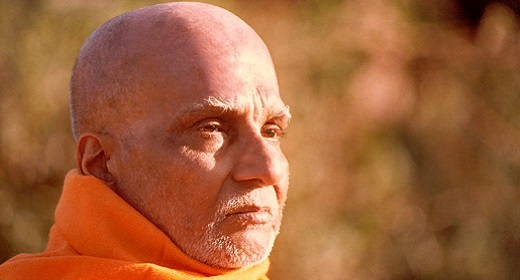by Deepak Chopra, M.D.: Once a self-help term becomes shopworn, it needs to be refreshed. I think this is true of terms like faith, compassion, unconditional love and gratitude.  Let me address the last one. How is gratitude a useful expression of spirituality? No one argues that it makes others feel good if you are grateful, but is that useful to their personal growth and yours? Many people find it much easier to give than to receive, for example, which makes it hard for them to feel grateful when they are on the receiving end of a gift, favor, appreciation or love. They look embarrassed and uncomfortable instead.
Let me address the last one. How is gratitude a useful expression of spirituality? No one argues that it makes others feel good if you are grateful, but is that useful to their personal growth and yours? Many people find it much easier to give than to receive, for example, which makes it hard for them to feel grateful when they are on the receiving end of a gift, favor, appreciation or love. They look embarrassed and uncomfortable instead.
Until we get to the bottom of why gratitude is so hard, we cannot really understand what gratitude actually is. A few points need to be made.
- You are genuinely grateful when your ego gets out of the way.
- Real gratitude isn’t passing and temporary.
- Gratitude takes openness and the willingness to set your ego aside.
- No one is grateful for things they think they deserve. Therefore, gratitude is unearned, like grace.
- When it is deeply felt, gratitude applies to everything, not simply to goodies that come your way.
These points focus on gratitude as a state where “I, me and mine” has been set aside. In a grateful state you are vulnerable, as the ego sees it. In reality, this feeling of openness must exist in order to receive grace, love, beauty and inspiration. More than one painter and composer has thanked God formally, knowing that there is a higher source — something beyond the isolated individual — that brings inspiration. There is a spiritual reason for such a sense of receiving from “on high,” and it doesn’t need to involve God or religion.
I’m talking about connection, feeling joined to and upheld by a higher intelligence. “Intelligence” is a more neutral word than God, and to me a more appropriate one, because we all possess intelligence, and if it suddenly expands or brings us an unexpected gift (such as insight, inspiration, a creative leap), it’s only natural to feel grateful. You know at those special moments that something beyond your control has made itself known. The ego dislikes this loss of control, which is why you see people frown when surprised by a sudden gift or even the unexpected words, “I love you.”
So the state of open receptivity needs to exist before gratitude has any spiritual usefulness; that connection is precious. Of course, there is polite gratitude, a social gesture that is nice in its own way. There is the gratitude of survivors who have narrowly missed death and disaster. There is passing gratitude for getting satisfaction from extra money, status, possessions and praise. All of these things count, but not nearly as much as gratitude for your very existence.
That kind of gratitude is truly spiritual, since it sets up a feedback loop — the more grateful you are, the more your soul can give. Herein lies a trap, however. I recently caught a TV thriller set in a prison where a convict tells the warden that he is spiritual but not religious. The warden asks him to explain. “You can speak your mind,” he says, and the convict replies, “Spirituality is for those seeking understanding. Religion is for those seeking reward.” If you use gratitude as a ploy to get more gifts and gains (We are all guilty of this at one time or another), you are not experiencing a soul connection but an imitation set up by the ego. The ego is always out to get more, and if gratitude oils the machinery, all the better.
Will gratitude help you form a soul connection? This isn’t a “fake it until you make it” issue. Gratitude, being a virtue, does help to put the ego in its place. A few moments of humility is all to the good, for anyone. But in a way your discomfort when being at the receiving end will prove more useful, because it indicates that you have obstacles and resistances to move inside yourself — if you can resist sweeping your embarrassment under the rug but use it instead for self-examination, then the true bonding with your higher self begins.







































